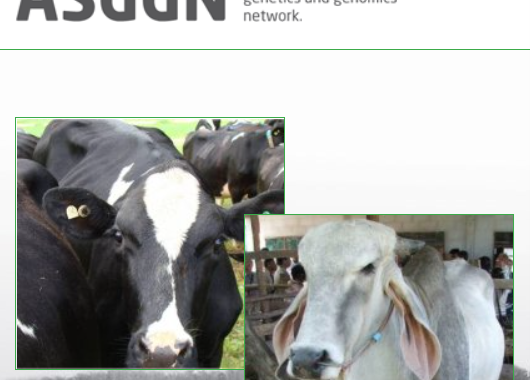by Ghader Manafiazar; assistant professor at Dalhousie University
The Animal Science Genetics and Genomics Network (ASGGN) Discussion Forum was held online on June 2, 2021. It offers a forum and environment in which scientists from all over the world can share information and data relating to breeding to mitigate methane (CH4) emissions from grazing livestock. The theme of the discussion this year was potential proxies of ruminants’ methane emissions. I was invited to speak about our work on the fecal methanogen species and methane production and forage intake from grazing beef heifers. It was encouraging to have a discussion with others working in the field and share new results and approaches, for example, the pros and cons of using fecal samples to estimate methane production.
It was really useful to participate. I learned about several potential proxies, such as microbiome profiles, that might be used to predict methane production in ruminants. It appears that the microbiome is comparable to other proxies. I also learned that volatile fatty acids could be used to rank sheep based on their CH4 yield. It was interesting to see the results of ongoing research on measuring rumen volumes in sheep by CT scanning, with the potential of selecting animals for lower methane production. Still, research using proxies to predict methane emission in animals is preliminary so a systematic review is needed of the available publications from which to make practical recommendations.
It was also great to see some Gentec friends among the speakers, including Dr. Rainer Roehe from Scotland’s Rural College, Dr. Suzanne Rowe from New Zealand AgResearch, and Dr. Filippo Miglior from the UoGuelph. Dr. Miligor talked about Canadian efforts to decrease methane emissions in dairy cattle. This project was a great collaborativeeffort between the UoGuelph, Gentec, and many international partners. This effort to improve the profitability and sustainability of the dairy industry is continuing with another Genome Canada-supported project led by Christine Baes at Guelph.
The Discussion Forum has a single focus: methane emissions. I recommend it for researchers working in methane mitigation. I may not be able to implement my learning at the farm level soon since research in this area is ongoing but, given today’s environmental concerns, I see there are new applications and adoption in the next decade. I am looking forward to being involved in my new position at Dalhousie including continued collaboration with the Gentec team.

